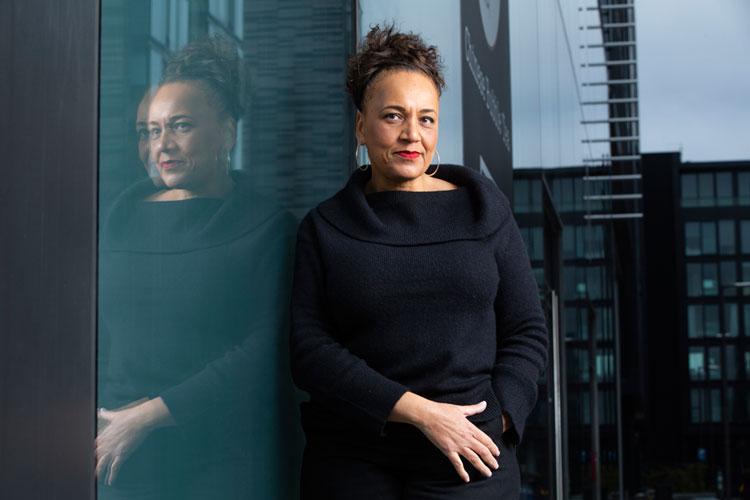
Lesley Lokko has revealed the title of her forthcoming Venice Architecture Biennale: The Laboratory of the Future.
‘New technologies continuously appear and disappear, giving us unfiltered glimpses of life in parts of the globe we will likely never visit, much less understand,’ Lokko said in a statement announcing the theme. ‘But to see both near and far simultaneously is also, as [W. E. B.] Du Bois and [Franz] Fanon famously put it, a form of ‘double consciousness’, the internal conflict of all subordinated or colonised groups, which describes the majority of the world, not only ‘there’, in the so-called Developing-, Third-, and Arab Worlds, but ‘here’ too, in the metropoles and landscapes of the global North.’
Born in Dundee to a Ghanaian father and Scottish Jewish mother, but raised in Accra, Lokko studied Hebrew and Arabic at Oxford for a term before relocating to the US for the first time. She returned to Britain in 1988 to study architecture at The Bartlett, London.
‘In Europe we speak of minorities and diversity, but the truth is that the West’s minorities are the global majority. There is one place on this planet where all these questions of equity, race, hope and fear converge and coalesce. Africa. At an anthropological level, we are all African. And what happens in Africa happens to us all.’
The academic is the founder and director of the African Futures Institute, established in 2020 in Accra as a postgraduate school of architecture and public events platform, having previously established the the Graduate School of Architecture at the University of Johannesburg.
Alongside teaching internationally, for the past thirty years, her work in both architecture and literature has looked at the relationship between race, culture and space. In 2004 she wrote her first novel, Sundowners, followed up by 11 more works of fiction. Her thirteenth book, The Lonely Hour, is forthcoming in 2023. In 2000 she authored White Papers, Black Marks: Race, Space and Architecture.
In 2019 she was appointed the dean of the Bernard and Anne Spitzer school of architecture in New York but left after a year citing a ‘lack of respect and empathy for black women’.
‘It was a textbook “problem woman of colour” scenario,’ Lokko told The Guardian in 2020. ‘The black woman arrives in an organisation and everyone is so enthusiastic. It’s treated like the coming of the second messiah. Then she begins to question the organisation and hold people accountable for their actions, and soon she’s targeted and made out to be the problem.’
The eighteenth edition of the biennial will open to the public 20 May 2023.